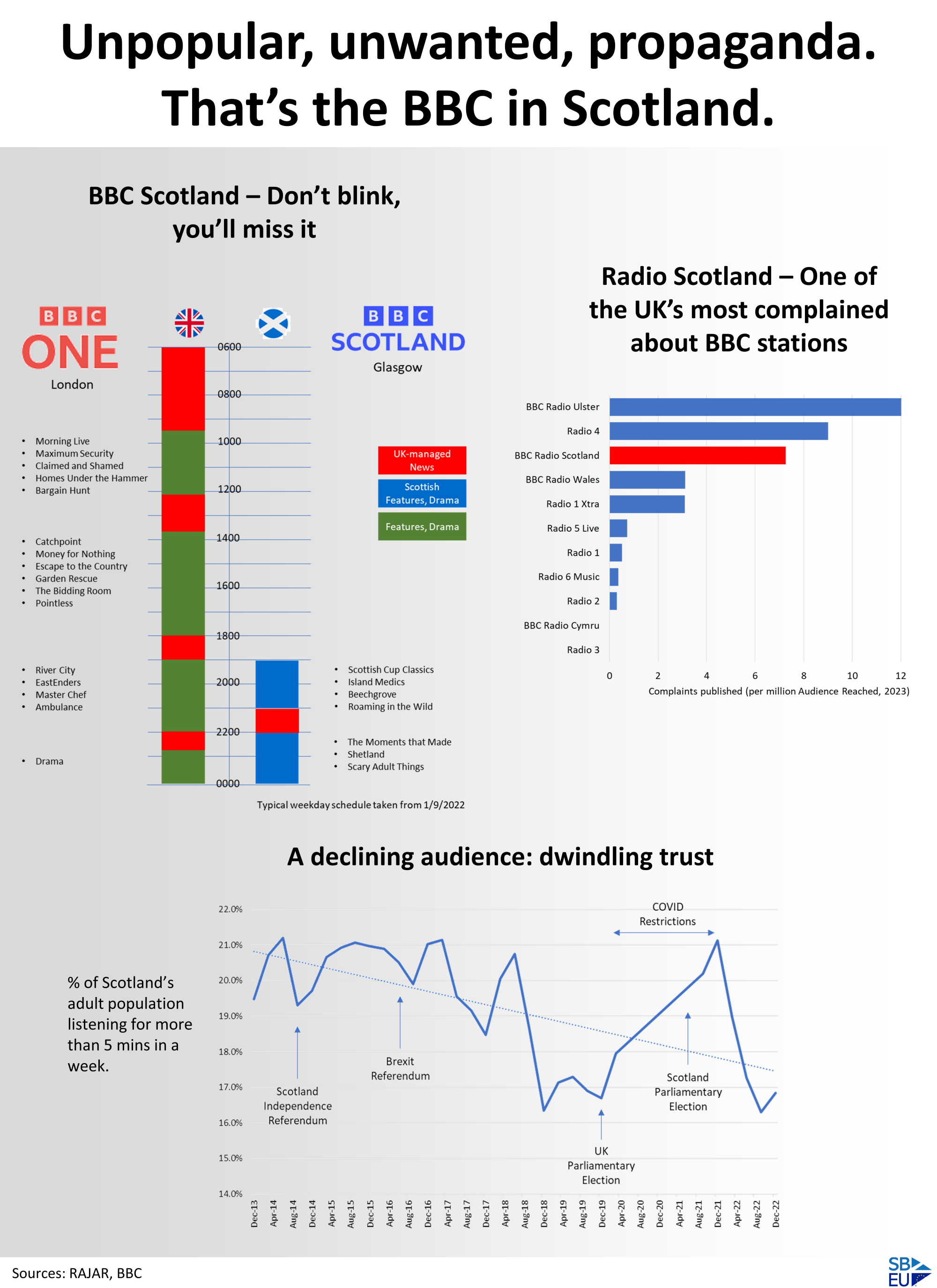Unpopular, unwanted; little more than propaganda. That’s how increasing numbers of people feel about the BBC in Scotland.
Programming
BBC Scotland is Scotland’s main TV channel from the national public broadcaster we are forced to fund, but have no control over: broadcasting is a power reserved for the UK Government.
If you compare the programme schedules for BBC Scotland and BBC One it is apparent that Scotland is very much treated as a minority interest area. BBC Scotland generally broadcasts nothing for most of the day. What it does broadcast tends to be old repeats already broadcast on the “main” channels – and one short news/current affairs programme.
Even that one short news programme is produced under editorial control from London.
The BBC’s programming for Scotland’s national public radio channel, Radio Scotland, is no more convincing:

In Scotland the programme schedule is filled with cheat to produce chat and music – interspersed with UK-managed news. Contrast this with the main national channel aimed at England. Full of a rich collection of features and drama.
Complaints
If you consider complaints in proportion to the audience reach (size) of Radio Scotland, it is one of the most complained about BBC outlets. And those complaints are all about its news and current affairs output. Like BBC Scotland, it’s editorial stance is ultimately controlled from HQ in London. The BBC Board is largely appointed by the UK Government – so there is really no surprise that it takes a very pro-unionist approach.
But what’s particularly surprising is the contrast in how similar news stories are dealt with in Wales, for example, as compared with Scotland. Consistently the BBC treats the Welsh government with respect, reports are balanced, and the government is always asked to respond to opposition criticism. None of this applies in Scotland. The Twitter account @MSM_Monitor regularly highlights these differences.
Audience reach
For many years the BBC Radio Scotland audience reach (how much of the adult population listens regularly) has declined. It is telling that at times of national importance the audience generally builds, but then falls off sharply to reach even lower levels – the exception being during COVID when reporting of the Scottish Government’s communications drove audiences up. This shows how little the BBC is trusted.
Further evidence of this general dislike of the BBC’s output for Scotland can be seen in the level of TV Licences held:

Scotland has a much higher level of households with no TV Licence than the rest of the UK.
Sources

Leave a Reply